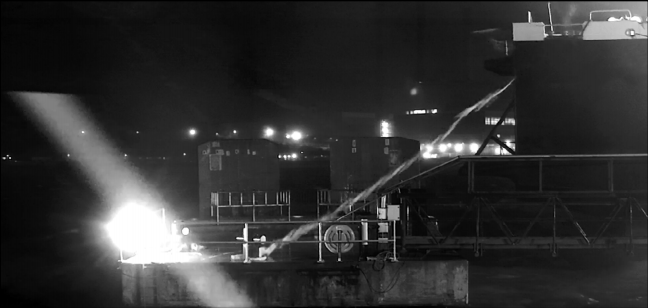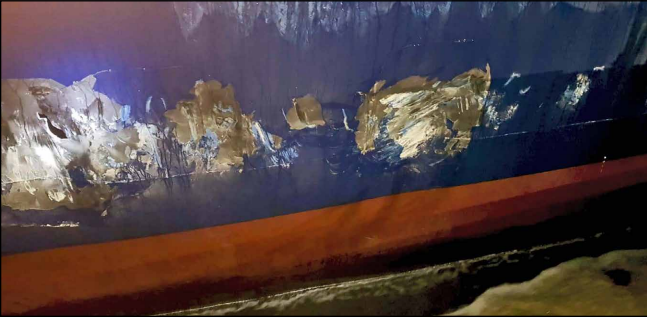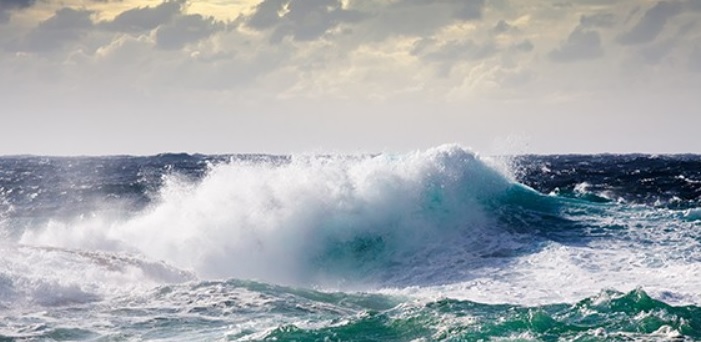In the latest Safety Digest, UK MAIB focuses on the importance of the weather forecasts for the avoidance of relevant accidents; UK MAIB advises that if severe weather is forecast, all options available should be considered and all relevant precautions should be taken to establish the safety of the crew.
The incident
Severe weather with storm force conditions was forecast for the night, when a ro-ro passenger ferry was berthed starboard side alongside.
The stern door was closed, and additional mooring lines had been set up in anticipation of the storm.
[smlsubform prepend=”GET THE SAFETY4SEA IN YOUR INBOX!” showname=false emailtxt=”” emailholder=”Enter your email address” showsubmit=true submittxt=”Submit” jsthanks=false thankyou=”Thank you for subscribing to our mailing list”]
During the early hours of the morning the wind increased as predicted and a gust of air of around 56kts was recorded on board. At the same time, the stern lines parted in quick succession due to the extreme force of the wind.

UK MAIB reports that the ferry’s stern started to swing away from the berth and the movement was intensified by the tidal stream until the port side made heavy contact with the adjacent quay, causing damage.

By this time only one mooring line remained intact forward. The officer on watch on the bridge alerted the crew by UHF radio and made a general PA announcement.
The duty engineer went to the engine room and started the engines and thrusters.
The harbor authority was also notified, and a tug arrived shortly. With the tug in attendance and the engines and thrusters in bridge control, the ferry was moored port side alongside and the tug remained pushing until the storm had passed.
Lessons Learned
- UK MAIB advises to always be prepared for the worst. In this case, the weather forecast was accurate, and the strong winds coincided with high tide, which exposed most of the ferry’s superstructure to the wind. It was reasonable to rig extra mooring lines in anticipation of the weather. Yet, it is noted that further precautions could have been taken, such as keeping propulsion, steering and thrusters at immediate notice and having a tug standing by
- It is particularly important to address whether it is safe to remain in harbor, especially for high-sided vessels or those on exposed berths. The master, together with the harbormaster, should decide if it is better to remain alongside, move to a more sheltered berth or consider getting underway. UK MAIB highlights that each vessel will have its own characteristics, which the master should consider.
- Once one mooring line parted, the load on other lines inevitably and rapidly increased, enhancing the likelihood of further breaks. UK MAIB advises that careful consideration should be taken prior to sending crew on deck in such conditions until engines and thrusters or a tug is available and the load on the mooring lines can be eased.
Earlier, in October, IMO and the World Meteorological Organization conducted their first joint Symposium on Extreme Maritime Weather, focusing on the challenging weather conditions and how they affect the shipping industry.
The event “Extreme Maritime Weather: Towards Safety of Life at Sea and a Sustainable Blue Economy” enabled the WMO to discuss the best practices and enh services for safety and risk reduction, emergency response, sustainable shipping practices and greater collection and sharing of ship observations.
The participants also referred to the importance of an accurate and timeliness weather forecast, which has seen an improvement in the last decades; Yet, many are those who are lost at sea because of extreme weather conditions as high winds, large waves, fog, thunderstorms, sea ice, freezing spray and volcanic ash.
In July, the Nautical Institute issued its June edition of The navigator focusing on weather as a critical factor for safe navigation. The weather can make the difference between a prosperous or loss-making voyage, can cause injury to crew and passengers and can even lead to the loss of a ship. Awareness of the weather and accurate predictions are both vitally important.































































